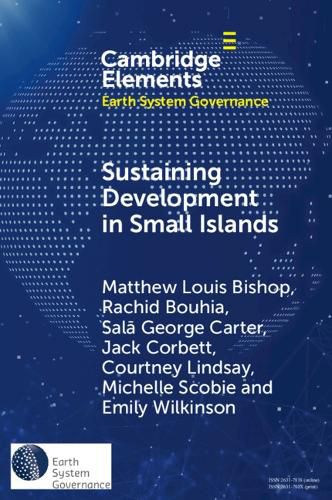Readings Newsletter
Become a Readings Member to make your shopping experience even easier.
Sign in or sign up for free!
You’re not far away from qualifying for FREE standard shipping within Australia
You’ve qualified for FREE standard shipping within Australia
The cart is loading…






The viability of small island developing states (SIDS) is threatened by three distinct processes - a backlash against globalisation; rising geopolitical competition between powers; and accelerating climate change - which are pulling at the threads binding the liberal international order together. We suggest that this order has been kinder to SIDS than is often acknowledged because its underpinning norms - sovereign equality, non-interference, and right to development - are inherently permissive and thus provide SIDS with choices rather than imperatives. Their leaders should fight for the continuation and enhancement of that order rather than be seduced by alternatives. We provide a rationale for and examples of policies to achieve this, including reforms to the way ODA is measured, debt restructured, climate finance allocated, and global governance organised. These enhancements represent the most plausible pathway for SIDS in a period of significant global upheaval. This title is also available as Open Access on Cambridge Core.
$9.00 standard shipping within Australia
FREE standard shipping within Australia for orders over $100.00
Express & International shipping calculated at checkout
The viability of small island developing states (SIDS) is threatened by three distinct processes - a backlash against globalisation; rising geopolitical competition between powers; and accelerating climate change - which are pulling at the threads binding the liberal international order together. We suggest that this order has been kinder to SIDS than is often acknowledged because its underpinning norms - sovereign equality, non-interference, and right to development - are inherently permissive and thus provide SIDS with choices rather than imperatives. Their leaders should fight for the continuation and enhancement of that order rather than be seduced by alternatives. We provide a rationale for and examples of policies to achieve this, including reforms to the way ODA is measured, debt restructured, climate finance allocated, and global governance organised. These enhancements represent the most plausible pathway for SIDS in a period of significant global upheaval. This title is also available as Open Access on Cambridge Core.